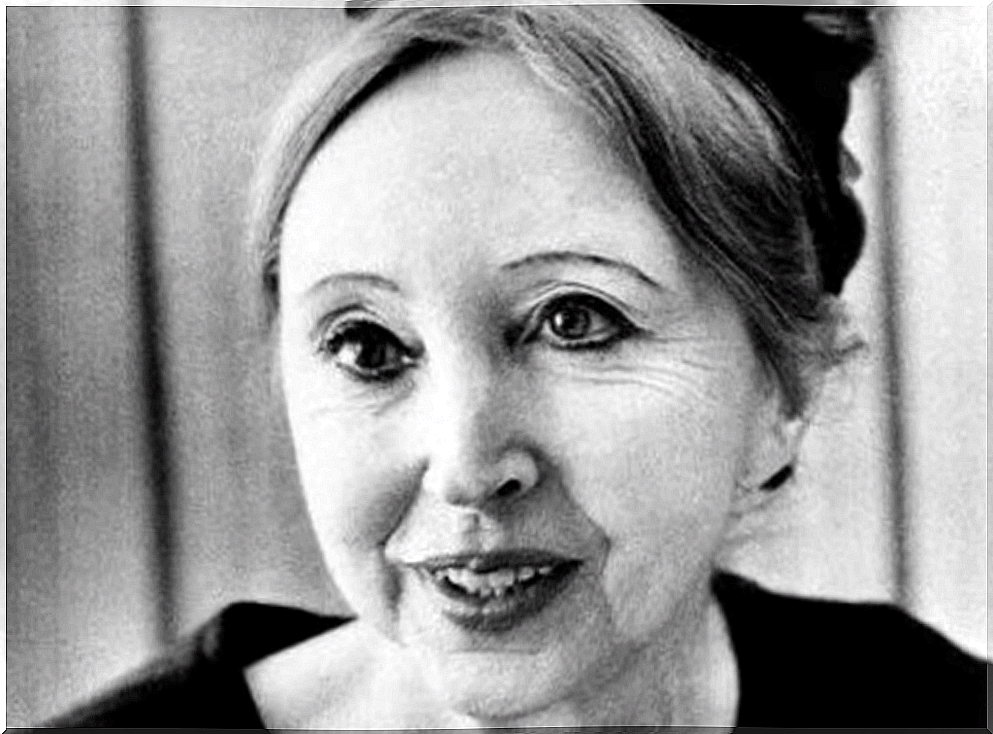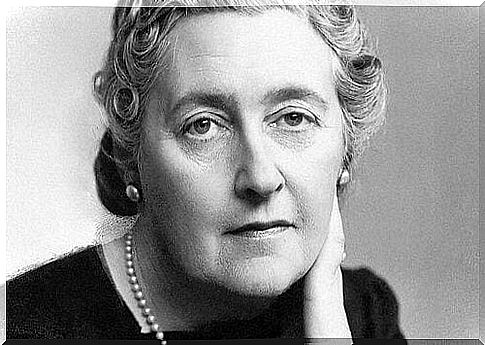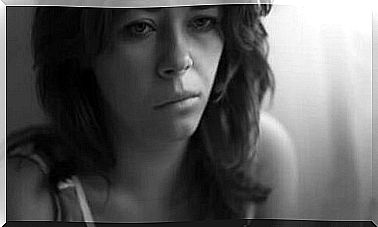The 7 Most Beautiful Sentences Of Anaïs Nin

The most characteristic aspects of Anaïs Nin’s sentences are the freshness and honesty with which they have been developed. Some are statements taken from his Journal , which has a total volume of 35,000 pages. She started writing it at age 11 and never stopped.
Thus, another good part of the phrases of Anaïs Nin which made her the most famous come from her correspondence with Henry Miller, which she maintained from the age of 27 until her death. The two have become one of the most emblematic couples in the literary world.
This writer, born in France but naturalized American, shocked more than one. Indeed, she was the first woman to publish erotic content in the United States. In his day, his straightforward and uninhibited style was problematic.
However, what is most notable in his work is not the erotic aspect, but rather his reflection on the human. Without dwelling on this preamble any longer, we invite you to discover in the rest of this article some of Anaïs Nin’s sentences that have most marked our memories.
1. For Anaïs Nin, the measure lies in courage
One of Anaïs Nin’s most beautiful sentences, one of those overflowing with the most joy, says that “Life shrinks or expands in proportion to our courage ”. The most interesting thing about this statement is that it mentions courage as the main determinant of the degree of coverage of life, so to speak.
And Anaïs Nin is absolutely right. Fear has the particularity of confining us to narrow margins, whether in our ideas, in the spaces we occupy or in the experiences that we live. Courage, on the other hand, is the force that drives us to cross borders and expand our reality.

2. Things as they are
This is one of the sentences in which Anaïs Nin reaffirms this subjectivist tradition to which she belonged. It indicates in fact: “We never see things as they are, we see them as we are”. In other words, reality is a personal construction. ”
Each human being “filters” reality, based on their desires, their fears, their personal history, etc. Thus, what one person defines as “real” is not exactly equivalent to what another person defines as such. Subjectivity determines our way of seeing things.
3. One of Anaïs Nin’s quotes about love
Most of Anaïs Nin’s sentences are devoted to love. This one, for example, tells us: “ You cannot save people, you can only love them” . Anaïs Nin therefore shows us a realistic perspective, as opposed to a romantic point of view on love.
In romanticism, love is the answer and the salvation to everything. However, in reality, each one must struggle with his destiny, which is the fruit of internal and external factors. Nothing and no one changes that. True love simply loves.
4. The world that everyone is building
Many people go through life thinking that it is other people or the world that needs to change in order to make reality more tolerable. Ultimately, however, it is ourselves and no one else who can ensure that it is assimilated and digested.
This is the idea that Anaïs Nin conveys in this sentence: “When you create a tolerable world for yourself, you create a tolerable world for others” . It is then a question of building a tolerable world for ourselves. And this is more than enough to improve other people’s world.
5. Natural death in love
Here is another of Anaïs Nin’s most love quotes: “ Love never dies a natural death. He dies because we do not know how to return to his source ” . The most interesting thing about this statement is the reference to the source.
Love is not born out of nothing; it is the combination of factors or reasons that causes it to arise. At the origin of love, there is also its essence. So if we don’t want to see him die, the goal is to get back to basics.

6. What is shame for Anaïs Nin?
Anaïs Nin tells us that “Shame is the lie that someone told you about yourself” . It is a very fair and profound observation that resolves the dark plot of shame. First, she defines it as a lie and then, as something that comes from others, not from oneself.
There is shame when there is, simultaneously, the gaze of another which signals it. It is this signaling that leads us to think that we are not worthy or that we should hide. This is where shame is born: from the credit we give to what the other partially sees of us.
7. The fear of death
Death is a recurring subject in the literature. Anaïs Nin also reflected on this subject and its implications. From there is born this affirmation as simple as strong: “People who live deeply are not afraid of death.”
The fear of death comes mainly from this confrontation with the possibility of not being. To be diluted in nothingness. This fear is greater when one has not lived to the fullest. Finally, to be afraid of dying is to be afraid of never being again.
These sentences by Anaïs Nin are just a small sample of the interesting work of this writer, who challenged taboos and prejudices. She had the courage to live according to her own criteria and to make love a universal and very human feeling, which has no barriers.









